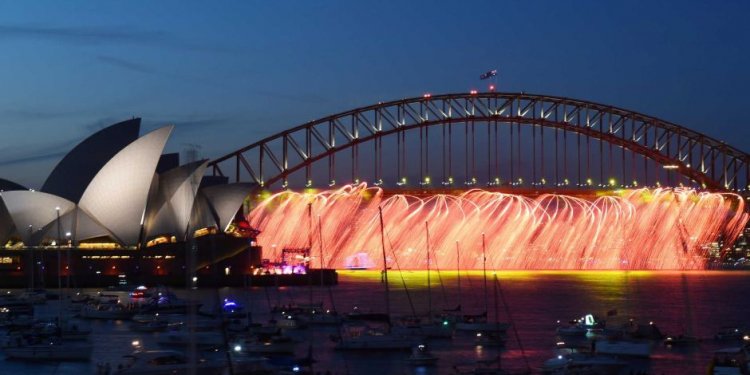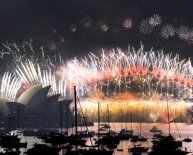
New Year in Australia
Many Australians annually celebrate New Year’s Eve with parties, music and other forms of entertainment on December 31. New Year’s Eve is the day before New Year’s Day in the Gregorian calendar, which is used by many Australians.
 New Year's Eve events in Australia include masquerade balls or parties.New Year's Eve events in Australia include masquerade balls or
New Year's Eve events in Australia include masquerade balls or parties.New Year's Eve events in Australia include masquerade balls or
What Do People Do?
Major Australian cities have special New Year’s Eve events that include parades, music and entertainment. Celebrities are often invited as guests of honor or hosts for large New Year’s Eve events. New Year’s Eve balls are popular and have various themes such as masquerade, black-tie and formal wear, tropical, or gangster and glamour. Prizes for most intriguing or best-dressed outfits are awarded at these events. Many people also prepare their New Year’s resolutions for the next day.
Many Australians celebrate New Year’s Eve on boat cruises, urban parklands or beaches. Others hold special parties or barbecues at their own homes. Public countdowns to New Year's Day are made at large events in major cities, such as Sydney, and are often televised so those at home can join in the celebrations. As the clock strikes midnight to mark New Year’s Day, fireworks are launched to farewell the old year and to welcome the new year. People often hug, shake hands or kiss each other on the cheek to show their joy and appreciation for the old and new years. Many people also toast their glasses and drink champagne or wine to commemorate this occasion.
Public Life
New Year’s Eve is not a public holiday in Australia. However, schools and educational institutions are closed on this day as it is in the school holiday period. Some government offices may be closed or have limited staff as many public servants get time off during this period.
Background
New Year's Eve is the last day of the year and the day before New Year’s Day, which marks the start of a new year according to the Gregorian calendar, which was introduced to Australia by European settlers. Pope Gregory XIII introduced the Gregorian calendar in 1582. It was adopted immediately in some areas of Europe but it was not used in Great Britain until 1752.

















